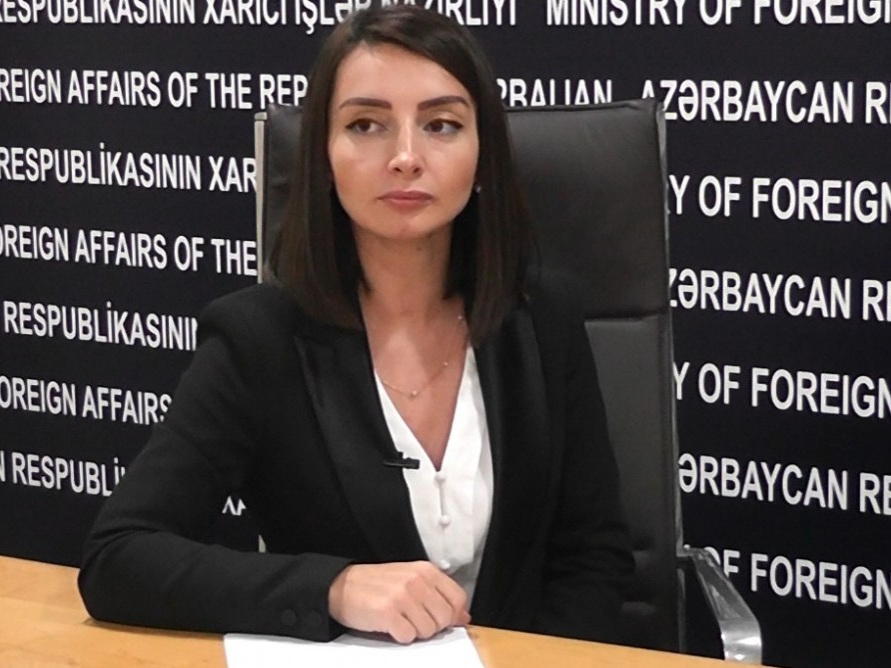Baku, Azerbaijan, Oct.18
Trend:
Azerbaijan has always supported continuation of substantive negotiations based on all documents requiring liberation of its occupied territories and the return of internally displaced persons to their homeland, said spokesperson for Azerbaijan’s Foreign Ministry Leyla Abdullayeva, Trend reports.
Abdullayeva commented on the remarks made by Armenian Foreign Ministry, which said that allegedly, Kazan document
was rejected by Azerbaijan. The remarks came after the interview of Azerbaijan’s foreign minister with Izvestia newspaper.
"The current process began with negotiations at the level of Armenian and Azerbaijani foreign ministries in Prague and led to the development of so-called “Madrid Principles” in 2007 by the OSCE Minsk Group. In 2009, these proposals were finalized and became known as so-called “updated Madrid principles”. On their basis, in 2009-2013, heads of the OSCE Minsk Group co-chairs made joint statements, outlining the main contours of the conflict settlement. This logic is reflected in all subsequent activities of the co-chairs, as well as in their statements, including the one made March 9, 2019," Abdullayeva said.
The spokesperson noted that as for the so-called "Kazan document", it was also based on the norms and principles of international law reflected in the UN Charter, the Helsinki Final Act, as well as on well-known resolutions of the UN Security Council and relevant decisions of other international organizations.
“Azerbaijan, as the international community demands, has always supported the continuation of substantive negotiations based on all documents requiring the liberation of its occupied territories and the return of internally displaced persons to their homeland. We have repeatedly witnessed Armenian side making such insolvent and ridiculous statements. However, instead of continuing such futile attempts, it should think about the real reasons of delays in advancing the negotiation process and take steps that could ensure peace and security in the region and create conditions for Armenia itself to break the deadlock in which it found itself due to its unconstructive position", added Abdullayeva.
The conflict between the two South Caucasus countries began in 1988 when Armenia made territorial claims against Azerbaijan. As a result of the ensuing war, Armenian armed forces occupied 20 percent of Azerbaijan, including the Nagorno-Karabakh region and seven surrounding districts.
The 1994 ceasefire agreement was followed by peace negotiations. Armenia has not yet implemented four UN Security Council resolutions on withdrawal of its armed forces from Nagorno-Karabakh and the surrounding districts.






